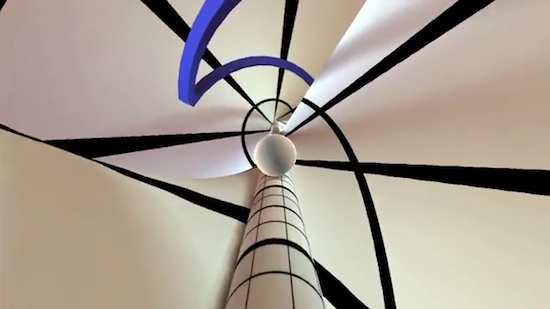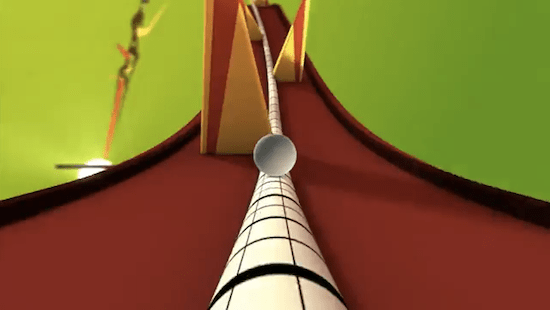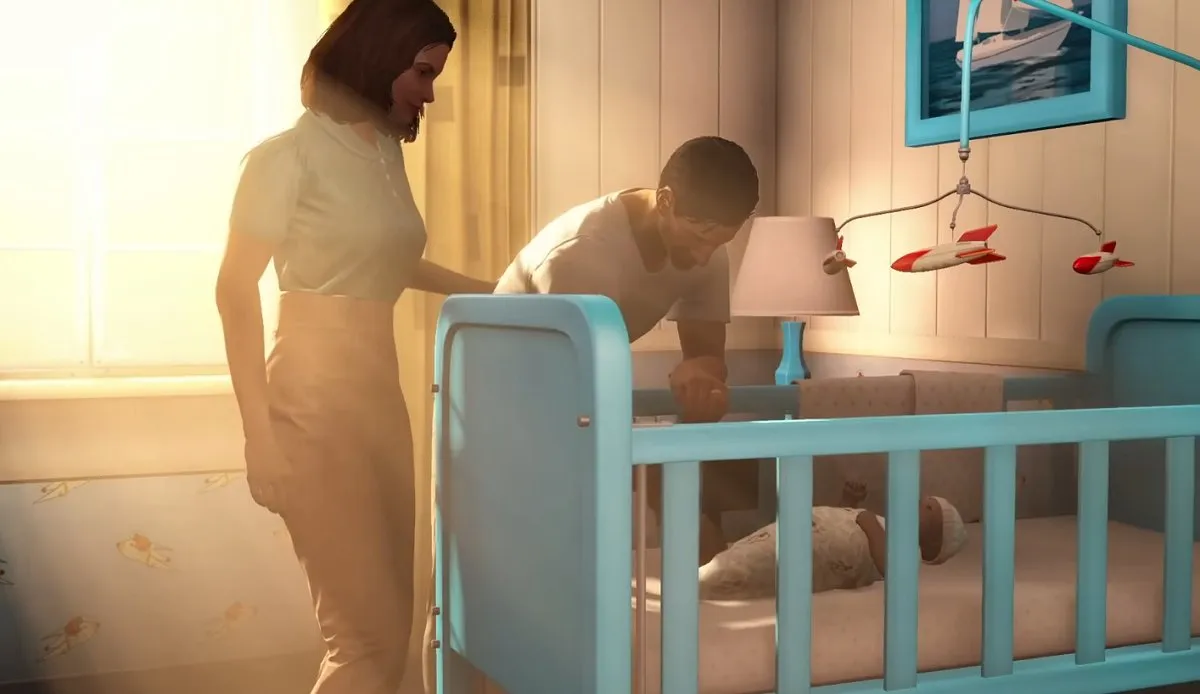Ever since I saw that scene in the bar in Hackers where Jonny Lee Miller plays that odd game and trumps Angelina Jolie’s high score, I’ve always been partial to video games that, if an onlooker happens to be watching me play, they’d have absolutely no idea what is going on. This led me to gems like FreQuency, Amplitude, and PixelJunk Eden. I happened by a screenshot of what seemed to be a video game, but I absolutely no idea what was going on, and thus, I’ve been following it up until its release four days ago.
You see all that stuff happening in the above screenshot? That’s a video game. Proun, it’s called. You play as a fluffy ball that races through abstract art. It took developer Joost van Dongen six years to complete the game, which only has five different official tracks players can race through at four different difficulties. Why did it take so long if it only has five tracks? Proun was a side project that Joost worked on during his spare time, and said spare time didn’t always allow him to work on it. As we recently learned with Duke Nukem Forever, a game that takes so long to develop doesn’t always mean the amount of time put into it will return a great product, but for one guy who has a steady job working on other games, for me, Proun ended up being a must-play, however quickly that play ends up being.
We’ll start with the biggest drawback: Currently, Proun is only offered for Windows. Whether Windows is your gaming platform of choice, the limitation means you actually may not be able to run out and play Proun after I am finished encouraging you to do so if you don’t have a Windows computer. Regardless, Proun is a quick, extremely replayable, must-play title.
As was previously mentioned, in Proun, the player assumes the role of a fluffy ball that races other fluffy balls through abstract art. As the ball picks up speed, the fluff becomes smooth, which is not only visually pleasing, but helps the player gauge the ball’s speed. The track is a cylindrical coil, but instead of terrifying the player into thinking the ball can slide off the coil, the coil actually acts as the ball’s gravitational pull and the ball can never fall off.
At its heart, Proun is a racing game, so the goal is simply to finish in first place and record better race and lap times. In single player, the player races against A.I. balls, but there is also the option to race ghosts of the player’s past races, and a four-player split screen using a combination of segregated areas on the keyboard and joystick input. The controls are simple, with each player only requiring five buttons total, for instance, the standard WASD setup to control the ball’s speed and movement, and the shift key to activate a speed boost, but the player can customize the controls.
Players rotate their ball around the cylindrical track in such a way where it’s more like they’re rotating the entire level around the moving ball, as the camera stays upright with the ball, rather than the player losing sight of the ball if it goes to, for example, the underside of the track.
Though the player races his friends, ghosts of past performances or A.I. controlled balls, the real opponent of the game is the abstract art protruding onto the cylindrical track.
If the ball hits the objects in any way, depending on how dead-on the collision is, the ball can come to a complete stop or simply slow down a bit, with neither result beneficial for a game in which the player attempts to finish first.
The game allows the player to unlock a few different difficulties, with the main focus of speeding up the track each difficulty increase, rather than focusing on adding more obstacles or far superior opponents. After unlocking a few difficulties during my play sessions, I noticed that muscle memory became the main skill that helped me dodge the oncoming art, as opposed to using visual cues, which I felt actually increased the replayability of Proun, turning it into a sort of visual meditative aid. The soundtrack of uppity jazz certainly furthers that sentiment.
Best of all? Proun is available in two options: Free and pay-what-you-want, with the pay-what-you-want version coming with an extra track if paid for with at least a minimum price of $2. On top of that, Proun allows for user-generated tracks, so the seemingly minimal amount of initial tracks (even though the game comes in pretty cheap at a price of whatever you want) quickly balloons into a potentially infinite amount if the game catches on.
The game is lightweight and once it is mastered, if you aren’t feeling like participating in some visual meditation, only the user-generated levels will really increase replayability, but regardless of the overall quick experience, the game is fun and it is extremely gratifying whenever you race by the Objets d′art unharmed, and hey, if you want people to have no idea what in the world you’re doing when they pass by your computer, Proun is a safe bet to turn some heads.
Check out the trailer below, then go give some money to Joost van Dongen.










Published: Jun 28, 2011 04:02 pm